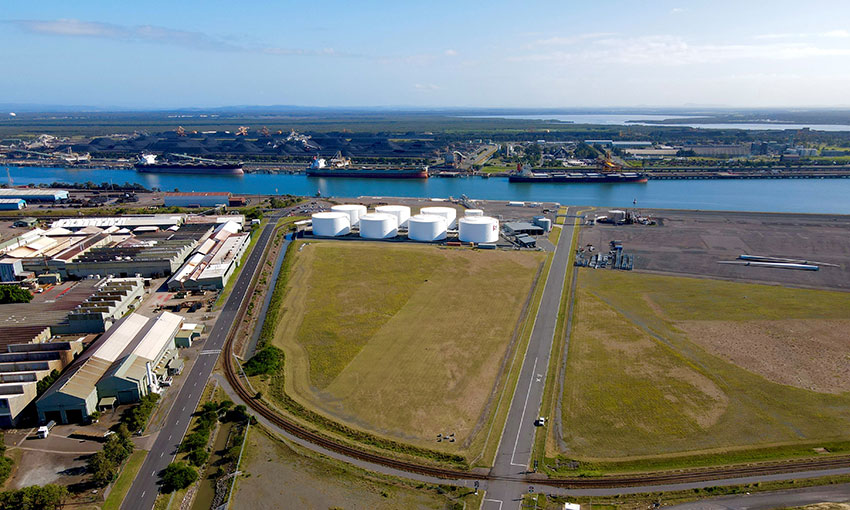THE federal government said it would invest up to $260 million to expand Australia’s diesel storage capacity to boost long-term fuel security.
The government is backing 10 projects that it said would increase Australia’s diesel stockholdings by 40%.
Minister for energy Angus Taylor said the grants would increase the volume of diesel stock Australia can keep onshore and help keep fuel prices low for consumers.
“We are delivering on our commitment to protect Australian motorists from fuel disruptions by building around 780 megalitres of diesel storage across the country,” Mr Taylor said.
“Diesel is vital to Australia’s energy security, as it keeps our economy running. It underpins our critical infrastructure, trucking sector and key industries, such as mining and agriculture.
“Many of these projects are located in strategic regional locations, which will help minimise shortages of diesel during peak usage periods and drive over $636 million of public and private sector investment into these areas.”
Along with the additional diesel storage, these projects will also deliver 202 megalitres of additional petrol and jet fuel storage funded by the private sector.
These grants will cover up to 50 per cent of total eligible project expenditure. Projects are expected to commence construction from mid-2021 and be completed within three years.
Port of Newcastle CEO Craig Carmody said the funds would support critical infrastructure investment at the port, boosting current tankage capacity across the port’s three bulk terminals increase from 266 megalitres to 624 megalitres when construction is complete.
“The awarding of grants to two projects in the Hunter is recognition of the importance the Hunter, and the Port of Newcastle, plays in supporting NSW and Australia’s economic strength and performance,” Mr Carmody said.
“The Port of Newcastle is thrilled to be in a position to strengthen Australia’s fuel security by investing in the expansion of diesel, petrol and aviation jet fuel reserves at our dedicated bulk-liquids facilities operated by Stolthaven and Park Fuels.”
Mr Carmody said the Port of Newcastle received the largest allocation of the grants, which he said was “a clear vote of confidence in our region and the Port of Newcastle’s capability and ability to diversify”.
“Through these grants, Port of Newcastle will play a significant part in increasing the volume of diesel stock we can keep onshore, create 130 local jobs during the construction phase and help keep fuel prices low for consumers,” he said.
“The awarding of these funding packages to these Port of Newcastle based companies is another critical step forward in diversifying trade to create a safe, sustainable and environmentally and socially responsible port for generations to come.”
The Port of Newcastle has three bulk liquid import terminals: Stolthaven, Park Fuels and ATOM (Australian Terminals Operations Management). Stolthaven and ATOM operate dedicated bulk-fuels terminals at Mayfield 7 and Dyke 1 berths respectively, while Park Fuels operates from Port of Newcastle’s Bulk Precinct at Walsh Point.
The Boosting Australia’s Diesel Storage program is a part of the government’s fuel security package announced in the 2020-21 Budget. It aims to secure Australia’s long-term fuel supply by increasing onshore stockholdings and the country’s sovereign refining capability to meet Australia’s needs during an emergency and into the future.
The program will assist industry in meeting the new minimum stockholding obligation, which will require industry to hold petrol, jet fuel, and diesel stocks at or above pre-COVID national average levels from mid-2022. From mid-2024, the minimum stockholding obligation will require importers to hold a 40 per cent increase in diesel stocks.
The projects are:
- Stolthaven Australia (126 ML, Newcastle NSW),
- Coogee Chemicals (100 ML, Kwinana WA),
- Park (30 ML, Port Kembla NSW),
- Park (30 ML, Newcastle NSW),
- Viva Energy Refining (90 ML, Geelong VIC),
- Terminals (80 ML, Outer Harbor, Adelaide SA),
- Qube Holdings (110 ML, Lumsden Point, Port Hedland WA),
- Qube Holdings (73 ML, Port Kembla NSW),
- Airport Development Group (80 ML, Darwin NT), and
- Ampol Limited (60 ML, Newport VIC).

